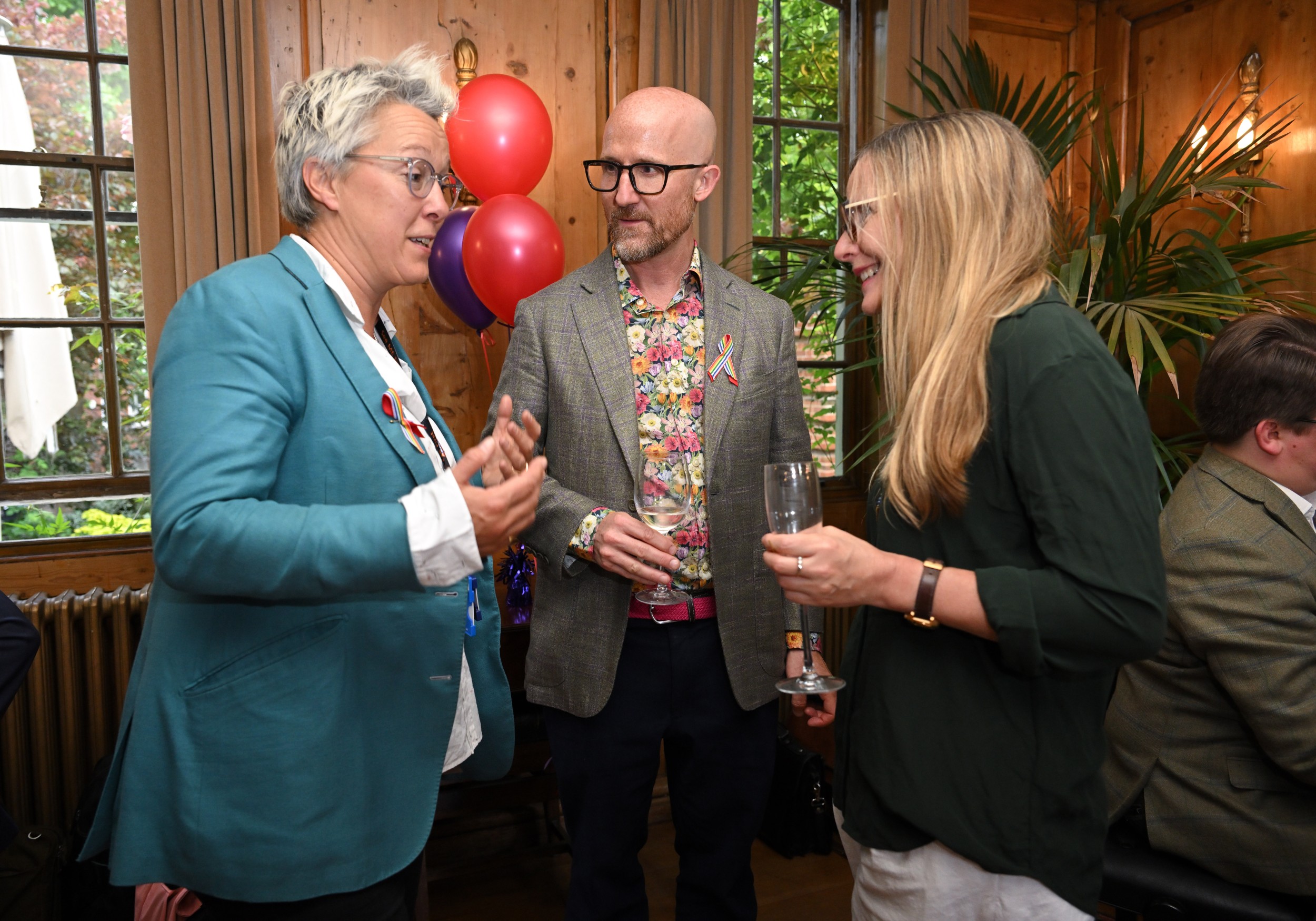
Staff and patients came together last week to celebrate the Ian Charleson Day Centre’s 30 years of extraordinary, pioneering care for those living with HIV.
During the past three decades, there has been a revolution in the care provided to those with HIV and, thanks to the development of effective antiviral drugs, patients newly diagnosed with the condition are now able to lead long, healthy lives.
The ICDC – based at the Royal Free Hospital - has been at the forefront of this change. Named after the actor Ian Charleson who died of AIDS in 1990, the centre was the first clinic in the UK to provide care for people with HIV and AIDS.
Held at Burgh House in Hampstead, last week’s event celebrated the enormous achievements of the past 30 years – including the immense volume of research which has led to new treatments, the setting up of a specialist women’s clinic and the use of joint clinics so that patients with HIV receive input from a range of specialists.
Today around 3,000 patients regularly use the service and clinical trials and social science studies are frequently conducted at the centre.
Almost 100 guests attended the event, including the Mayor of Camden, Nasim Ali OBE, and Professor Kevin Fenton CBE, regional director for the London office of the Department of Health and Social Care's Office for Health and Improvements Disparities and Chair of the HIV Action Group Implementation Steering Group.
Professor Fiona Burns, HIV clinical lead at the Royal Free Hospital, told guests: "The Ian Charleson Day Centre is a truly special and unique centre. It is an inspiring and rewarding place to work and has always been ahead of its time. Since its inception we’ve been able to deliver holistic care focused on the many different needs of people living with HIV.”
Caroline Clarke, group chief executive of the Royal Free London, said: "Many years ago as a student in 1991 I remember my friend saying to me that they had just started attending the Royal Free Hospital's Ian Charleson Day Centre and they felt safe and welcome and thought they were going to get really good care. I had no idea then how my life would end up linking with the trust and this incredible service which has delivered ground-breaking and globally important research. Of course it is the people that are so important and I'd like to pay tribute to Margaret Johnson and all the people you have pulled around you."
Professor Margaret Johnson OBE, HIV research director at the Royal Free Hospital, said: "The ICDC has moved with the times in terms of medical care but the dedication from its staff has been unwavering and the fact that many of the staff have worked for the service for years reflects that.
"We know that the goal is that by 2030 we can see an end to new acquisitions of HIV in England but we do need to continue to provide holistic care to our ageing patients and we are going to continue to build on this work."
Dr Tristan Barber, an HIV consultant at the ICDC with a special interest in ageing and HIV, was thanked, along with other members of the team, for organising the event, which had been delayed for two years due to the pandemic.
Pictured: Caroline Clarke, Tristan Barber and Fiona Burns
 Translate
Translate